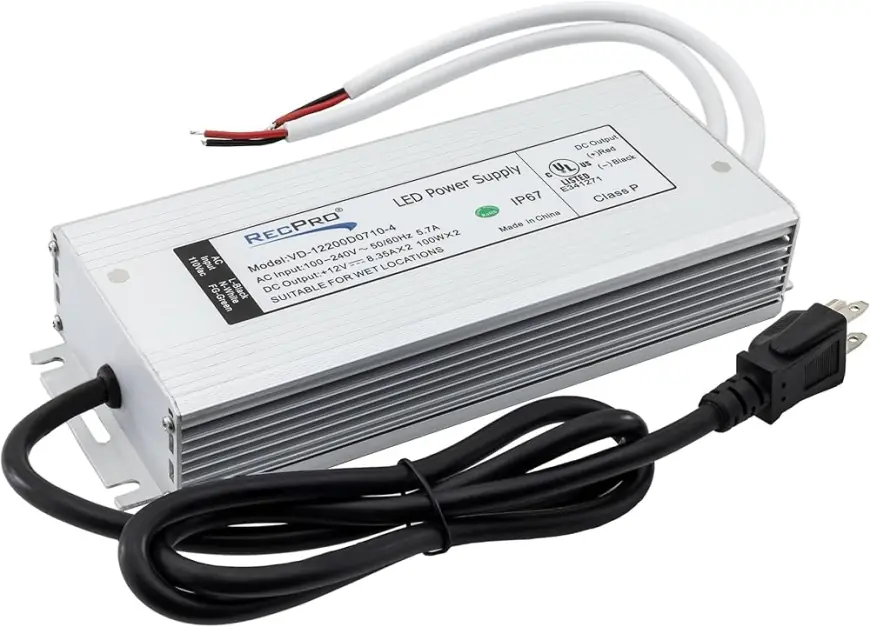RV 150A DC-DC Converter for 12V Appliances: A Reliable Power Solution

Introduction
When it comes to powering 12V appliances in an RV, ensuring a stable and efficient power supply is crucial. A 150A DC-DC converter is an excellent solution for managing power conversion efficiently. Whether you're on the road or parked at a campsite, a DC-DC converter ensures your appliances receive a steady 12V supply without fluctuations. This article explores the benefits, functionality, and key considerations when selecting an RV 150A DC-DC converter for 12V appliances.
What is a DC-DC Converter?
A DC-DC converter is an electronic device that converts one DC voltage level to another. In the case of an RV 150A DC-DC converter, it regulates and steps down a higher voltage (such as 24V or 48V) to a stable 12V output, ensuring your appliances function properly.
Why is a DC-DC Converter Important in an RV?
RVs often use multiple voltage systems. For instance, many solar power setups and vehicle alternators operate at higher voltages, such as 24V. Since most RV appliances run on 12V, a DC-DC converter bridges the gap, providing consistent power without overloading or underpowering appliances.
Key Benefits of a 150A DC-DC Converter
Investing in a 150A DC-DC converter comes with several advantages:
1. Stable Power Supply
Voltage fluctuations can damage sensitive electronics. A DC-DC converter provides a steady 12V output, preventing appliances from malfunctioning.
2. High Power Capacity
With a 150A capacity, this converter can power multiple devices simultaneously, including refrigerators, lighting, water pumps, and entertainment systems.
3. Efficient Power Conversion
Modern DC-DC converters have high conversion efficiency, often exceeding 90%, minimizing energy loss and heat generation.
4. Extended Battery Life
By optimizing voltage levels, a DC-DC converter ensures batteries discharge evenly, extending their lifespan and performance.
5. Protection Against Overcurrent and Overheating
Most 150A DC-DC converters come with built-in safety features like overcurrent protection, overheating shutdown, and short-circuit prevention.
Applications of a 150A DC-DC Converter in an RV
A 150A DC-DC converter is a versatile tool that supports various applications, such as:
1. Powering 12V Appliances
From refrigerators to LED lighting, a DC-DC converter ensures these appliances receive a stable power supply, preventing flickering or shutdowns.
2. Charging Auxiliary Batteries
Many RV setups use dual battery systems. A DC-DC converter helps efficiently charge house batteries from a higher-voltage source without overcharging.
3. Supporting Solar Power Systems
Solar panels often produce variable voltages. A DC-DC converter regulates this power before it reaches 12V appliances, ensuring smooth operation.
4. Running Communication Equipment
For RVers who work remotely or require a stable communication system, a 150A DC-DC converter supports radios, GPS systems, and networking devices.
How to Choose the Best RV 150A DC-DC Converter
When selecting a DC-DC converter for your RV, consider the following factors:
1. Input and Output Voltage
Ensure the converter supports your RV’s voltage system (e.g., 24V or 48V input, 12V output).
2. Current Rating (150A Capacity)
A 150A converter is suitable for high-power applications. Ensure it meets your appliance power demands.
3. Efficiency Rating
Look for a converter with 90% or higher efficiency to reduce energy loss and heat buildup.
4. Built-in Protections
Choose a model with overload, short circuit, and thermal protection for safety and longevity.
5. Durability and Cooling System
A good DC-DC converter should have a robust heat dissipation system, such as cooling fans or heat sinks, to prevent overheating.
Installation Guide for a 150A DC-DC Converter
Proper installation ensures maximum efficiency and safety. Follow these steps:
Step 1: Choose a Suitable Mounting Location
-
Select a ventilated area with minimal exposure to moisture.
-
Avoid placing it near flammable materials.
Step 2: Connect Input and Output Wires
-
Use appropriately rated cables to handle 150A current.
-
Securely connect the input wires from the battery or power source.
-
Attach the output terminals to the 12V appliance circuit.
Step 3: Secure the Connections
-
Ensure tight, corrosion-free connections.
-
Use fuses or circuit breakers for additional protection.
Step 4: Test the System
-
Turn on the power source and measure voltage outputs.
-
Check for overheating or abnormal noises.
Maintenance Tips for Longevity
To ensure your 150A DC-DC converter operates efficiently, follow these maintenance tips:
1. Keep it Clean
-
Regularly wipe off dust and debris from the converter and cooling system.
2. Check Connections Periodically
-
Inspect wire terminals for corrosion or loosening.
3. Monitor Temperature Levels
-
Ensure the cooling fans function properly.
-
Avoid prolonged exposure to high temperatures.
4. Test Output Voltage
-
Use a multimeter to verify stable 12V output.
Conclusion
A 150A DC-DC converter is an essential component for RV owners looking to power 12V appliances efficiently. It provides stable voltage, improves battery performance, and ensures smooth operation of various RV electronics. By selecting a high-quality DC-DC converter with the right specifications and safety features, you can enhance your RV's electrical system and enjoy uninterrupted power while traveling.
If you’re considering a DC-DC converter for your RV, ensure it meets your power needs, efficiency requirements, and safety standards for the best experience.

 bettsun
bettsun 










